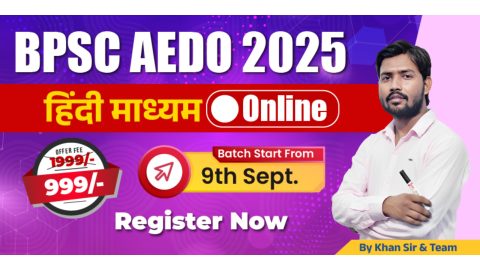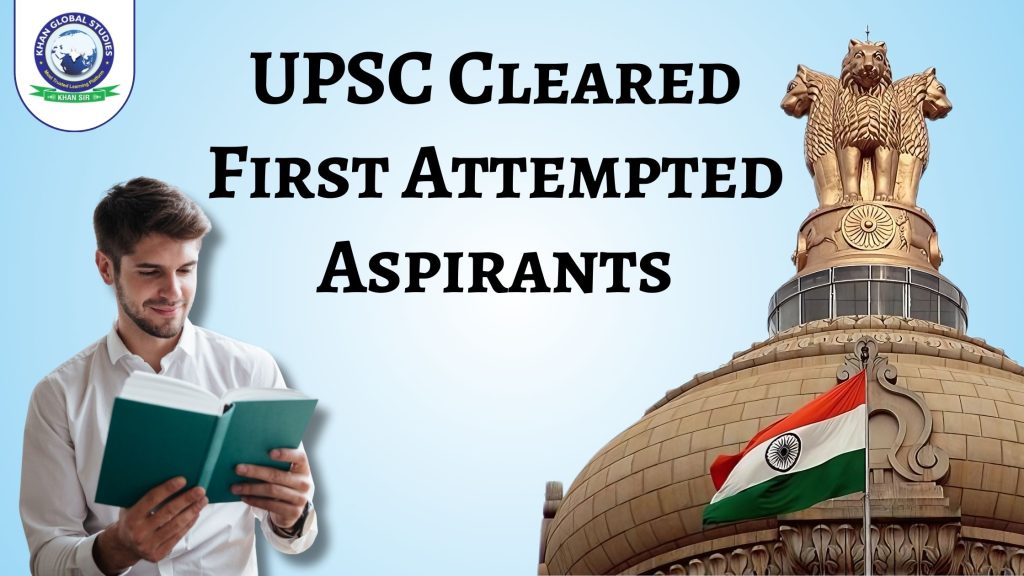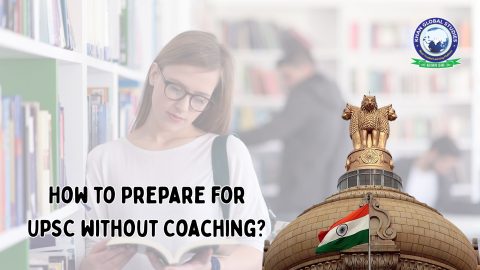The Civil Services Examination feels impossible without expensive coaching classes. Yet every year, determined candidates prove this belief wrong by clearing UPSC on their first attempt through pure self-study. Their success stems from strategic preparation, unwavering discipline, and smart resource utilization—not classroom lectures.
These remarkable individuals demonstrate that coaching institutes aren’t gatekeepers to civil service dreams. With the right approach and mindset, you can achieve what seems impossible. Let’s explore their inspiring journeys and extract the blueprint for first-attempt success without coaching.
Breaking the Coaching Myth
The narrative surrounding UPSC preparation has long favoured coaching institutes. However, data reveals a different story. First-attempt candidates consistently make up 25-30% of the final selection list, and many achieve this milestone through self-directed study.
Success in the Civil Services Examination depends on understanding the syllabus deeply, consistent revision, and mastering answer-writing skills. These fundamentals can be developed independently using freely available resources and structured self-study approaches.
The real advantage lies not in expensive classroom programmes but in personalised preparation strategies that align with individual learning styles and circumstances.
Inspiring First-Attempt Success Stories
Srushti Jayant Deshmukh: The Structured Self-Study Champion
Srushti secured All India Rank 5 in 2018 at just 23 years old, becoming the highest-ranking woman that year. Her chemical engineering background didn’t deter her from pursuing civil services through methodical self-preparation.
Her approach centred on creating a highly structured study plan and adhering to it with unwavering discipline. She leveraged online resources extensively, watched educational content, and made answer-writing practice the cornerstone of her preparation. Srushti’s final score of 1068 out of 2025 marks demonstrates the effectiveness of organised self-study.
Satyam Gandhi: Pure Self-Study Excellence
Achieving All India Rank 10 in 2020, Satyam proved that dedicated self-study could compete with any coaching programme. His strategy emphasised building strong fundamentals, maintaining consistent revision cycles, and cultivating a positive mindset throughout the demanding preparation period.
Satyam’s success highlights the power of focus and determination when channeled through well-planned independent study.
Ananya Singh: The Young Achiever
At 22, Ananya cleared the UPSC examination on her first attempt, securing All India Rank 51 in 2019. Her youth didn’t limit her success; instead, it demonstrated that clarity of purpose and systematic preparation could overcome experience gaps.
She focused on creating comprehensive notes and adhering to strict timelines. Her achievement proves that age presents no barrier when combined with determination and strategic thinking.
Soumya Sharma: Triumph Over Adversity
Perhaps the most inspiring story belongs to Soumya Sharma, who achieved All India Rank 9 in 2017 despite losing her hearing at a young age. Her entirely self-directed preparation resulted in exceptional success, demonstrating that no obstacle is insurmountable with strong willpower.
Soumya’s journey exemplifies how personal challenges can be transformed into sources of strength through focused preparation and unwavering belief.
The Winning Strategy Framework
Successful first-attempt candidates share common preparation principles that form a replicable framework for independent study.
Master the Foundation
Every successful candidate begins with NCERT textbooks from classes 6-12. These books provide fundamental knowledge across all subjects in clear, accessible language. Building a rock-solid foundation through NCERTs creates the base for advanced learning.
Don’t rush to complex reference books before mastering these basics. The syllabus becomes manageable when you understand core concepts thoroughly.
Create and Follow Realistic Schedules
Discipline distinguishes successful self-study candidates from those who struggle. Create daily and weekly schedules that balance different subjects, include revision time, and allow for breaks.
The key lies in realistic planning. Overly ambitious schedules lead to frustration and abandonment. Better to study consistently for 8-10 hours daily than to plan for 14 hours and manage only 4.
Stay Current with Affairs
The UPSC examination heavily emphasises current events and their connections to static knowledge. Make newspaper reading non-negotiable. The Hindu or Indian Express provide comprehensive coverage suitable for UPSC preparation.
Supplement daily reading with monthly current affairs magazines. This combination ensures you stay updated whilst building the analytical skills needed for both Prelims and Mains.
Practice Relentlessly
Knowledge without application remains theoretical. Solve previous years’ papers to understand question patterns and examiner expectations. Join online mock test series to simulate exam conditions and identify weak areas.
Answer-writing practice distinguishes successful candidates from those with knowledge but poor presentation skills. Write structured answers daily, focusing on clarity, coherence, and word limits.
Develop Revision Systems
The vast UPSC syllabus demands systematic revision. Plan multiple revision cycles—weekly reviews of recent topics and monthly comprehensive revisions of entire subjects.
Create concise notes during initial study phases. These become invaluable during revision periods when time becomes precious.
Choose Resources Wisely
Successful self-study candidates limit their resources to proven materials rather than collecting countless books. Standard textbooks for each subject, combined with current affairs sources and practice materials, provide everything needed.
Quality matters more than quantity. Master fewer resources completely rather than partially studying many books.
Additional Success Stories
The list of first-attempt winners continues growing each year:
Tapasya Parihar (AIR 23, 2017) initially joined coaching but left to develop her own study rhythm, emphasising syllabus mastery and answer-writing skills.
Vidushi Singh (AIR 13, 2022) cleared the examination at 21 through robust self-study routines that included extensive mock testing.
Chandrajyoti Singh (AIR 28, 2019) demonstrated that focused individual effort could achieve top ranks without formal coaching support.
These examples reinforce that first-attempt success without coaching isn’t exceptional—it’s achievable through proper strategy and execution.
Maintaining Mental Fortitude
The psychological aspect of UPSC preparation often determines success or failure. Self-study candidates must develop strong mental resilience without external motivation systems.
Maintain realistic expectations while staying optimistic. Prepare for setbacks and develop strategies to overcome low periods. Regular exercise, adequate sleep, and social connections help maintain mental health during intense preparation.
Avoid negative influences and comparison with others. Your journey remains unique, and success comes at different paces for different people.
Beyond the Success Stories
These achievers didn’t possess superhuman abilities—they applied proven principles consistently. Their success demonstrates that with proper planning, dedicated execution, and unwavering belief, first-attempt success without coaching becomes entirely possible.
The path requires sacrifice, discipline, and patience. However, the reward—serving the nation through civil services—justifies every challenge faced during preparation.
Your Success Story Awaits
The examples of Srushti, Satyam, Ananya, and others prove that coaching institutes don’t hold monopolies on UPSC success. Their achievements resulted from strategic thinking, disciplined execution, and intelligent resource utilisation—qualities you can develop independently.
Start by understanding the syllabus completely. Build your foundation with NCERTs. Create realistic study schedules. Practice consistently. Stay current with affairs. Revise systematically.
Most importantly, believe in your capability to succeed. Every topper was once where you stand now—at the beginning of their journey with dreams and determination as their only certainties.
Your story of first-attempt success without coaching is waiting to be written. The blueprint exists in these pages. The resources are available online. The only remaining ingredient is your commitment to transform dreams into reality through sustained effort and unwavering focus.
The Civil Services await your contribution. Begin today, and join the growing community of self-made UPSC success stories.





